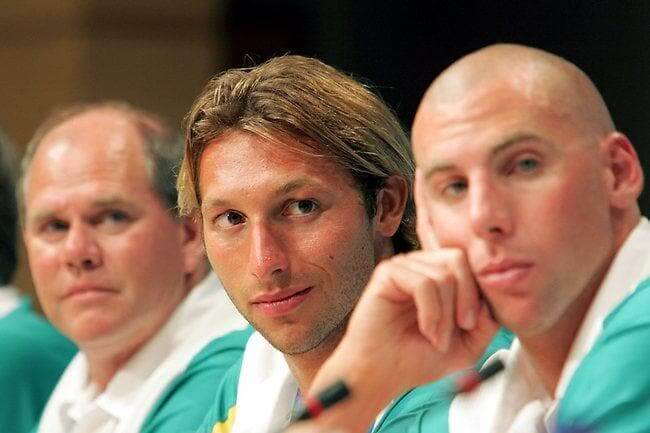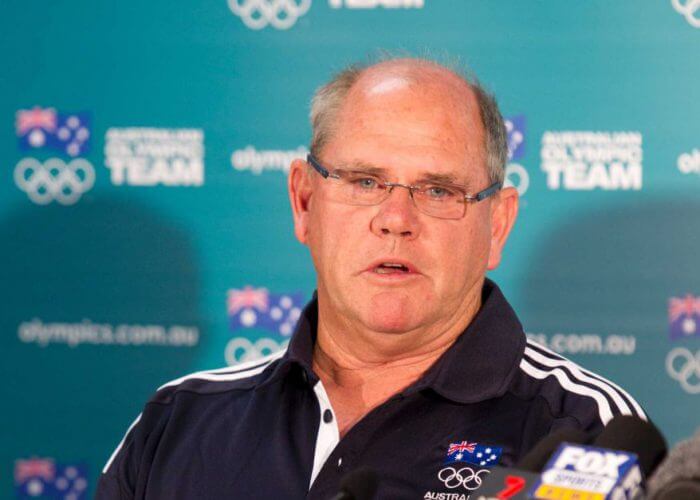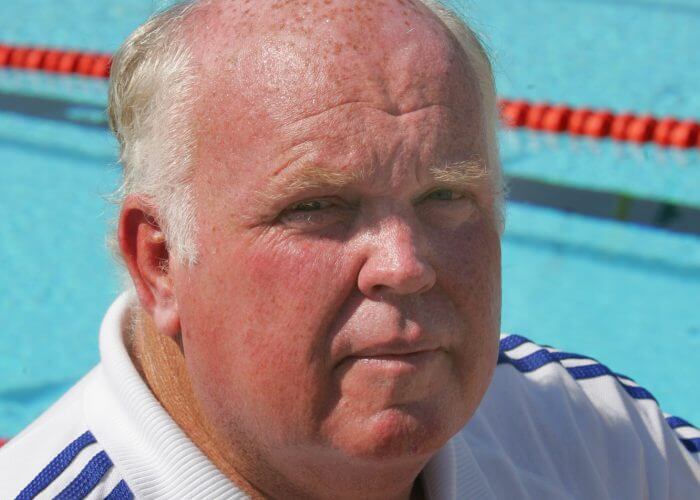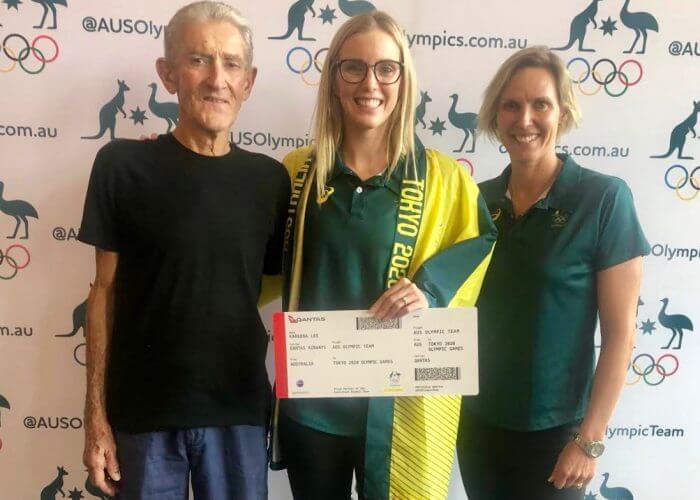Mental Health Issues Driving Coaches Out Of Sport, Says Olympic Mentor Leigh Nugent

Mental Health Issues
Mental health issues are driving coaches out of sport, says Leigh Nugent, the respected former Australian Olympic head swimming coach and leadership figure.
Nugent spearheaded Australia to a tall wave of successes at the Athens 2004 Olympic Games. In the wake of the Dolphins toppling the USA on gold count at the 2001 World Championships under Don Talbot‘s guidance, it was the height of a golden era in Australian swimming.
And an era that had far-reaching challenges over the next eight years, mental health among issues founded in the pressure-cooker of world-class and club sport that afflicted athletes and coaches alike.
The problems faced by athletes have been well aired of late. Less so the reasons why coaches burn out, why coaching is a profession cursed with a high rate of divorce and broken families.
In 2012, when the Dolphins suffered setback and stinging criticism over team culture and ‘failures’, Nugent was at the helm of the Olympic team once more. That’s life in the roller-coaster of elite sport.

Leigh Nugent – Photo Courtesy: Swimming Australia
The events of London 2012 and the backwash marked the toughest time of Nugent’s celebrated career after years of unwavering mentorship for Australia’s next generation of coaches and swimmers. Nugent continues in that role to this day on the way to Tokyo 2020.
At 68, Nugent is head coach of the South Australian and West Australian programs, still digging deep to ensure that coaches and swimmers are on track to fulfil their dreams.
But like so many coaches around the world his dedication to the coaching cause has brought highs, lows and soaring challenge whether high or low.
No surprise then to find Nugent welcoming an initiative #lookafteryourcoach program unveiled in Australia this week by the Brisbane-based M5 Management aimed at the mental well-being of coaches across all sports.
The campaign encourages anyone who plays sport at all levels to think about the coaches who make their sport possible, to consider the sacrifices they make, and say ‘thanks’ for their great contribution.
It is now very much a part of M5’s charter to improve mental health in the sports industry, a factor that has become a vitally important part of M5’s day-to-day work, and athletes and staff are now accustomed to being asked “How’s your mental health?” or “Where’s your head at today?”
Awareness: Coach Burnout – Nothing New But Long Ignored
Back in 2014, SwimVortex highlighted the negative and life-changing consequences of the kind of pressure coaches feel at the pointy end of business. Today, Swimming World replicates the report written by Craig Lord that highlights the significant academic research of Marte Bentzen, of The Norwegian School of Sport Sciences.
M5 director and the brainchild behind #lookafteryourcoach, Phil Stoneman, says that in the course of day-to-day operations, athletes, coaches and support staff all suffer from poor mental health and in some cases, burnout.
It has met with enormous reaction from athletes and coaches around the world. Says Stoneman:
“In 2018 we started talking regularly to our wide network about levels of coach wellbeing and the feedback reflected a common theme. Yes, it is a serious issue that needs attention and we love the concept of caring for coaches. We researched further and found a large amount of international and Australian research on the subject.
“The campaign is simple, in order to put the mental health of coaches across Australia on the agenda, M5 is asking the sporting community to acknowledge one of the most important roles in sport and the wider community the role of coach.”

Bill Sweetenham – Photo Courtesy: Toby Melville

Laurie Lawrence featured in Swimming World – Photo Courtesy: Swimming World Magazine
And Nugent bought straight into the initiative alongside his fellow Australian Swimming and Teachers Association (ASCTA) Life Members and former Olympic coaches Laurie Lawrence and Bill Sweetenham who are also supporting the cause.
Recently elevated to Life Member status at Swimming Victoria, Nugent said: “The true extent of over work, stress, anxiety, depression and associated health issues would not be known amongst the coach population, because it is generally accepted that if they choose to coach it goes with the job and they will cope and not succumb to such conditions.” He added:
“It is true that coaches receive accolades when a team or individual has success but it is more often the case that they receive criticism and negative accusation for perceived absence of success. The simplistic view of success is winning and all other outcomes are failure (which is far from fact), for which the coach is more often than not blamed. It is becoming increasingly common for coaches of children to be inappropriately challenged and more often than not abused by the ill-informed modern day parent. This type of unacceptable behaviour I’m sure, is leading to mental difficulties for our coaches, with the effect of driving them out of coaching and the sport.”
Nugent says that is where M5 comes in: “Here here to M5 … the plight of sporting coaches has long been over looked in the mental and physical wellness space and it is gratifying that M5 is waving the flag of recognition and support in this circumstance.”

Brendon Ward – Photo Courtesy: ASCTA
ASCTA CEO Brendon Ward acknowledged that Swimmers (Athletes) often spend more time with their coach than family or friends.
“Coaches are extremely important and influential in the development of athletes from a technical and personal perspective,” said Ward.
“They provide advice, knowledge and skills on well-being, leadership, time management, focus, discipline and many other life shaping aspects. In many cases the relationship between coach and athlete is very one sided with the coach giving so much, and the athlete taking and receiving. So, who looks after the coach? Who values their passion, commitment and professionalism?
He added: “#lookafteryourcoach is such an important initiative to remind athletes, parents, administrators and officials to take care of the person who takes care of so many others.
“I strongly encourage people to get behind this campaign, recognise the efforts of their coach and ensure they are being cared for.”

Kareena Lee, with Susie O’Neill and coach John Rodgers at the handing over of treasure: a ticket to the Tokyo 2020 Olympic Games – Photo Courtesy: Ian Hanson
And Australia’s latest member of the 2020 Australian Olympic Team, 10km open water marathon swimmer, Kareena Lee, was one of the first athletes to thank her coach, 81-year-old John “JR” Rodgers – a long standing Australian Olympic coach whose success goes back to the 1972 Munich Olympics with the late Jim Findlay.
Fittingly this tribute came on the same day two-time Olympic golden girl Susie O’Neill announced Lee’s selection on the Tokyo team – a feat Lee knows she could not have achieved without Rodgers by her side.
- “To my coach, my mentor, my psychologist, my nutritionist, my friend and the most important person in my swimming career…JR….Thank You!” Lee wrote on her Instagram page.
- “Thank you for putting us first, for spending your days planning our sessions, ensuring we will have the best chance to perform.
- “Thank you for travelling with us, even though it means spending a long time away from your family.
- “Thanks you for being the first one to celebrate with us when we win and the one to lift us back up when we fall.
- “To you “JR” and Jenny and to all coaches we appreciate you and everything you do – #lookafteryourcoach.”
Rodgers himself is lucky to be alive, surviving life-threatening heart surgery on the eve of Lee’s Olympic qualification swim in Korea in July.
Athletes around the globe have already banded together with an overwhelming support on the Facebook page posting videos, Instagram posts, message tagging their coach, sharing experiences about coaches who have made a significant impact on their careers and life beyond sport.




Mental health issues driving swimmers out of sport
Yes, Amanda, an issue that has had a great deal of publicity in recent years, and rightly so… which does not mean we should not consider others working in the sport.
Di Manley Jo Collins
Sleep deprivation
Indeed – as noted in this research: https://www.swimmingworldmagazine.com/news/burnout-on-the-burning-deck-when-fatigue-flows-to-the-day-falling-down/
I am studying to be a LCSW. I am a former swimmer and Coach and would love to work for USA swimming as a therapist. I have oftem said that burn out for both coaches and athletes is a problem. I left this world of swimming because of my own issues and am back to where I understand what is going on. Crazy hours, sometimes working 7 days a week, and losy pay for most assistants. To top it off having to mediate parents and help them feel good about themselves. Most assistants have to su]element there income with other jobs and do not have enough money for health insurance. I love and still follow swimming; it is my hope that a mental health professional is available for these coaches who are the backbone of our sport.
MK Mahoney I am very interested in this as well. If I have a bachelors degree what is required to be a LCSW?
Susanne Groce Smith you must get your masters in social work first which includes 2 internships. Then you have to take a conditional licensure test. Work for about 200 hours in the field and then take another test for your LCSW Licenced Clinical Social Worker
This is an issue that all of us can relate to at some degree. Glad it’s being brought up, however, with the work schedule and stress, I’d like to see what kind advise are there to help us.
Tiffany Tryon Neylon
Sad fact mental issues are miss understood and not supported by professionals. My son is 12 and a great swimmer and has no support with issues in the club and has stopped swimming. I am teacher with vast experience of working with children with many issues but clubs are ill equipped to support children and discriminating against these issues. In education we have deal every aspect of a child and be fully inclusive of their needs.
I think the underlying cause or what is causing depression and anxiety is not really being discussed.
How do coaches feel and what is causing it. Yes burn out is one factor, many coaches have other jobs and then dedicate their time to their athletes after hours.
When you put a lot of time and effort into an athlete and they leave and go to another coach how does that affect the coach. Why are some of the other contributing factors. I have spoken to many coaches that have left coaching for one reason or another and several have said to me that they lay awake night after night and can’t shut off and that can’t be good for anyone and eventually takes it’s toll. Being a coach can be rewarding but also physically and mentally draining.
Ryan, I think that’s precisely the kind of thing Marte Bentzen does indeed highlight in her research… and the response to that article since it was originally published suggests that at least some coaches are indeed talking about it. Whether its being taken seriously in the places it needs to be taken seriously is another matter…